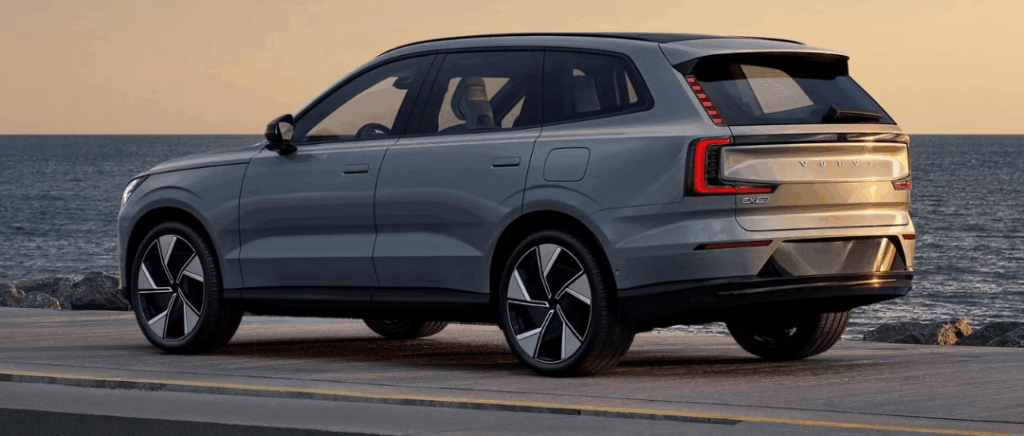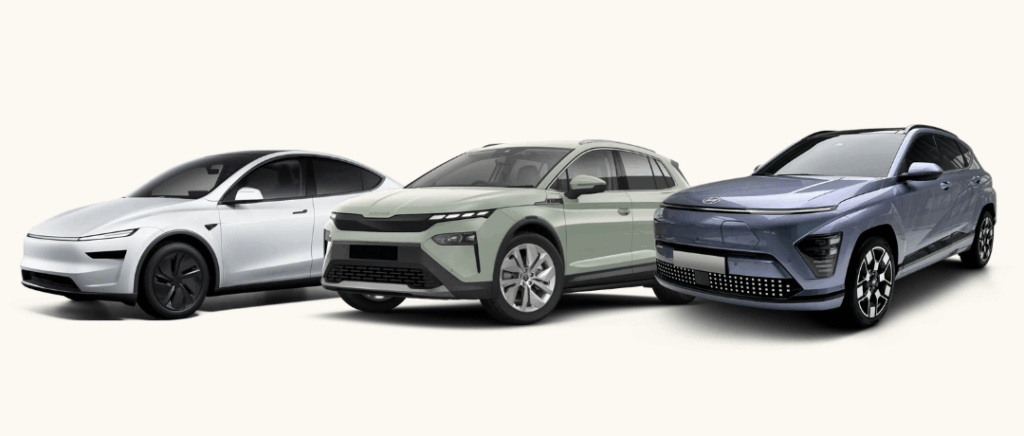Monday to Friday 9am - 12.30pm - 2pm - 7pm
Insurance & electric vehicles: the specifics
Insurance is an essential component in today's choice of vehicle. It defines a contract in which the insurer guarantees to compensate the insured if a certain risk occurs, in return for payment of a premium. Traditionally, insurance seeks to pool drivers' risks. It adapts its rates and its offer to those whose chances of incurring the risk are higher.
When the electric vehicle arrived on the scene, insurance companies were not planning to offer a dedicated insurance package. Why not? Mainly because of the lack of experience with this type of vehicle and the lack of data needed to model a risk for insurers. As a result, drivers of electric vehicles ended up paying a higher insurance premium because the value of the vehicle was higher than that of a car. thermal vehicle.
Is electric vehicle insurance cheaper?
Now that electric vehicles are becoming increasingly popular, insurers are no longer so reluctant to match rates. From now on, insurers want to attract electric vehicle drivers. Indeed, the insurance service is offered to owners of electric vehicles at a lower price than internal combustion vehicles, up to 50% cheaper.
In general, the price at which insurance is taken out varies according to the following factors many factors which concern :
- the driver: criteria such as the level of the no-claims bonus, age and length of driving licence.
- the vehicle: the insurer is interested in its power, its residual value and where it is parked (in an urban or rural area, on a street or boulevard, in a private or public car park, etc.).
In a bid to support the goal of carbon-neutral land transport by 2050, insurers are offering lower prices for electric vehicle insurance. The purchase decision depends on all the possible costs for the driver, known as the "cost of ownership". Total Cost of Ownership (TCO). The position of insurance companies in favour of electric vehicles contributes to the decision to buy.
The emergence of new insurance models
The introduction of electric vehicles is being promoted by the emergence of new insurance systems. Two models in particular:
- Pay as you drive A system of insurance per kilometre driven, which can be very profitable for short-distance drivers who cover distances of less than 8,000 km per year. A model adapted to electric vehicles, as they are generally used in urban areas.
- Pay how you drive A system that rewards good drivers according to performance and mileage. The price of insurance changes, with reductions of up to by -30 %.
As we have seen, insurance plays a role in the adoption of electric vehicles. The electric vehicle meets the challenges of sustainable mobility and extends the services offered by insurers. It's no longer just a question of meeting needs, but of moving closer to the kind of insurance we find in the UK, with a focus on rewards. France wants to become increasingly familiar with this Anglo-Saxon insurance model.
The rise of specialist electric vehicle insurance
Backed by major groups in the insurance, energy and automotive sectors, the French company Joltee specialises in insuring 100 % electric and plug-in hybrid vehicles. It has created a win-win system for both drivers and the players in its ecosystem. Current insurers, who offer specialist electric vehicle insurance vehicles in addition to internal combustion vehicles, justify low prices for this insurance, as exposure to risk is lower due to a autonomy batteries are still limited, or simply thanks to a commercial gesture applied to attract this type of driver. Joltee sees this as a temporary privilege for electric vehicle drivers and is proposing instead to pay its customers directly for their driving. To do this, it is using blockchain technology, and is generating its own crypto-currency: Jolt. These Jolts are earned at the end of each journey and can be used to pay for various insurance products, as well as electric mobility solutions from market players such as cars, scooters, bicycles and scooters.
The company's approach is designed to encourage electric vehicle drivers to adopt a more eco-responsible and respectful driving style. As electric vehicle drivers are already aware of the importance of eco-responsibility, they can take full advantage of the company's reward system. Joltee. They also benefit from the driving flexibility, peace and quiet of an electric vehicle.
This is a positive influence that electric vehicle drivers benefit from, and which is reflected in their driving analyses. The fact that most electric cars are new and therefore 'connected' means that the company can reap the benefits for its customers and its ecosystem.
Joltee aims to combine innovation and ecological transition by helping to reduce CO2 emissions. To achieve this, the start-up is looking to future technologies such as electric vehicles, connected cars and blockchain.
What is blockchain?
Blockchain is a technology that forms part of secure transaction solutions. It is a decentralised network in which the information exchanged cannot be falsified. The interface records all transactions and exchanges between users since its creation. Transactions are carried out in block form and continuouslyhence the name blockchain.
There are several types of blockchain:
- private blockchains: access is limited to a restricted number of people.
- public blockchains: free access for all players, as in the case of bitcoin.
It enables exchanges to be carried out without recourse to a single central control body. The transaction is carried out directly between the participants in the blockchain via mining technologies. peer-to-peer network.
What is crypto-currency?
It is a virtual currency, a motto electronic, because it has no physical form. It is exchanged from peer to peer or on exchange platforms, and is based on the blockchainwhich is kept up to date at all times.
A driver who drives a good electric vehicle is doing a service to both the community and the environment. They therefore benefit from loyalty programme that rewards the choice of electrics. It is dispensed in Jolt, the crypto-currency created by Joltee. The company then enables players in the ecosystem to participate in the financing of these Jolt projects, enabling them to reduce specific costs and risks and encouraging contributions from the community.
The company also aims to solve the problems of the cost of acquiring an electric vehicle, the cost of installing a charging point at home, parking and reducing road traffic density by rewarding the sharing of vehicles (car-sharing) and charging points. In other words, reduce TCO by monetising your vehicle or charging point, by offering it for hire to the community..
According to Florent, COO of Joltee, the vision of the future of mobility involves the electrification of fleets.
"We believe that, in a few years' time, the proportion of electric vehicles in the French car fleet will increase [...] Drivers will move towards leasing [...] This trend towards more electric vehicles will go hand in hand with a proliferation of mobility solutions enabling people to cover the 'last kilometre' cleanly (scooters, bicycles, scooters, etc.). This is why we will be offering our customers the option of using their reward to pay for their mobility solutions."
Using blockchain to electrify fleets
Including blockchain technology to facilitate the adoption of electric vehicles is a possible avenue. Blockchain can make up for the shortcomings of charging stations and reassure those who are anxious about travelling long distances in an electric vehicle.
The use of a blockchain between the owners of charging point and electric vehicle owners, would facilitate the acquisition of this type of vehicle. This arrangement would make it possible for everyone to pay for and recharge their electric vehicles at the charging point the nearest, without constraint. There is no need for trust, because blockchain technology ensures that the transaction is compliant and can be exchanged.
According to researchers at the University of Waterloo, electric vehicle recharging infrastructures could be strengthened if this blockchain was integrated into energy systems.
There is a lack of trust between recharging service providers and EV owners. An open blockchain-type platform could solve this problem. Parties could audit the network and be alerted to any anomalies.
Using a blockchain for the recharging system could also provide vehicle-specific data. For example, owners of electric vehicles would have more data on their vehicle, such as information on the level of recharging or even the life of the battery.
What does the future hold for electric vehicle insurance? The experts' opinion
As we said earlier, Joltee is a start-up that offers insurance services and makes it easier to use electric mobility solutions of all kinds: vehicles, bicycles, scooters and scooters, all using blockchain technology, by issuing its own crypto-currency (Jolt) to reward drivers for good driving behaviour at the end of each journey.
Why have you chosen to specialise in electric vehicles?
First of all, we should bear in mind that the choices made by manufacturers drive the markets. The automotive sector has decided to invest massively in the EV market - VW 33 billion, Daimler 43 billion, Renault-Nissan Alliance 30 billion. Governments have also adopted a proactive strategy to encourage the adoption of EVs, in particular by introducing incentives for the purchase of EVs, but also by forcing manufacturers to lower their average CO2 emissions via the CAFE standard. What's more, the number of towns and cities that have decided to gradually ban combustion engines continues to grow, starting with the introduction of low-emission zones. This is helping to steer the market towards cleaner engines such as electric vehicles.
Joltee has logically turned to the EV to contribute to its adoption and has created an insurance product that is as close as possible to the EV user experience by offering, in addition to the insurance product, services related to the EV via our growing network of partners.
What are the biggest differences between electric and internal combustion vehicles when it comes to insurance?
Electric vehicles are new, and feature the latest driving assistance and impact detection technologies. Generally more expensive on average than a combustion engine vehicle, it requires more careful use and maintenance is less frequent and less expensive. These factors have prompted insurers to consider whether they should charge differently for a motor insurance product designed for electric vehicles. Although solid studies on the impact of the type of engine on claims experience are rare, the lack of data linked to the recent launch of these vehicles is prompting insurers to ask these questions. Could this be an effect of selecting the best drivers, or simply that these vehicles are safer? The reason is still unclear, and only time will tell.
What is your vision of the long-term future of mobility?
We believe that, in a few years' time, the proportion of electric vehicles in the French car fleet will increase. The French have realised that climate change is coming and that they urgently need to change their consumption habits, as well as their transport habits.
Buying a new vehicle would not be the norm. Drivers would opt for leasing, which would call into question the usefulness of owning a vehicle. Vehicle owners, on the other hand, will take advantage of the sharing economy to amortise their acquisition. This trend towards more electric vehicles will go hand in hand with a proliferation of mobility solutions enabling people to cover the "last kilometre" cleanly (scooters, bicycles, scooters, etc.). That's why we will be offering our customers the option of using their reward to pay for their mobility solutions.
Do you think blockchain can help the adoption of electric vehicles? If so, how?
The monetisation of driving data by insurers and players in the automotive industry is a topical issue.
The opportunities for harnessing data from electric vehicles to improve battery management, report faults, suggest new solutions, and so on. charging stations or even rewarding drivers for their eco-responsible driving, with an insurance product that adapts to their driving, are areas of innovation in the automotive and insurance industry.
This mastery is taking place in a European context of data regulation: LOM, RGPD and other directives to define standards and protect users from non-consensual use of their data. This is where blockchain comes into its own, making data anonymous through encryption, security, traceability, transparency and interoperability. We see the primary interest of blockchain in the automotive and insurance industries as being to make a sharing network accessible and compatible for several players around the data, while maintaining a high level of security. These two sectors have the potential to drive rapid adoption of the electric vehicle, where contextualised data is the new gold rush.
What are Joltee's ambitions, and why is it banking on blockchain?
Joltee aims to encourage the adoption of electric vehicles and bring insurance closer to the driving experience.
Indeed, the growing demand for better air quality, as well as government and European initiatives in favour of more eco-responsible mobility solutions, have led us to promoting the energy transition. As well as a specialised EV insurance product, we offer a range of services to support its use, such as access to public charging stations, green electricity and the installation of charging point at home. What's more, our rewards program aimed at electric vehicle drivers, will be a fun way of improving customer driving habits, encouraging good driving behaviour and respect for the road, the vehicle and the environment.
This loyalty programme consists of financially rewarding good driving behaviour. These transactions are managed using the blockchain protocol. We are exploiting the benefits of this technology, which enables transactions to be recorded in a decentralised, secure and transparent way.
The content of this reward system cannot be falsified, even by the programme administrator.
In this respect, we believe that blockchain certifies the incorruptibility of data while preserving the identity of drivers.
Our future ambition is to implement our insurance contracts through the use of blockchain, with the help of an intelligent contract that will, among other things, be able to compensate policyholders automatically. The benefit of this technology will be to protect the identity of our drivers, while guaranteeing a smoother relationship between insurer and policyholder.
The data, stored on a platform whose transparency and security are guaranteed, will lead to significant improvements in insurance models, which will be closer to the driver's experience and more profitable thanks to products that are better adapted to driving.
What is the added value of blockchain for drivers?
Creating a reward system with a blockchain firstly guarantees the reliability of its allocation: this allocation cannot be revoked, as the transaction is recorded in an unalterable register. This technology also protects the identity of drivers.
Other benefits highlight the transparency, security and flexibility of the jolt reward system. This highlights the advantage that blockchain represents for the relationship of trust between companies, insurance companies and drivers, and therefore the overall experience of the loyalty programme. These analyses are based mainly on several aspects, including the non-expiration of Jolt and their transportability between individuals.
































